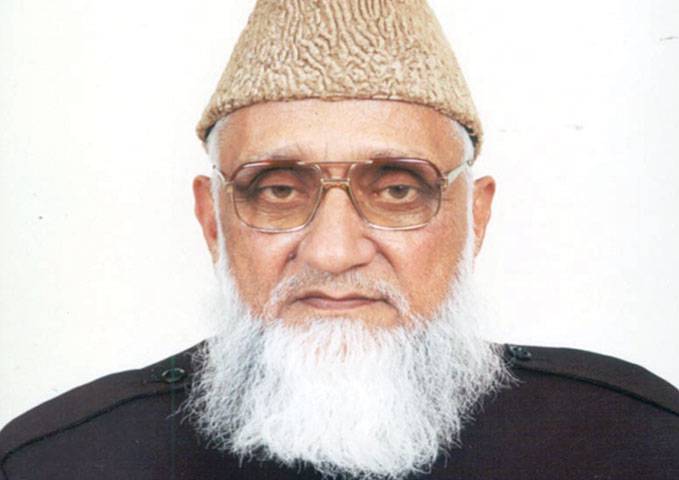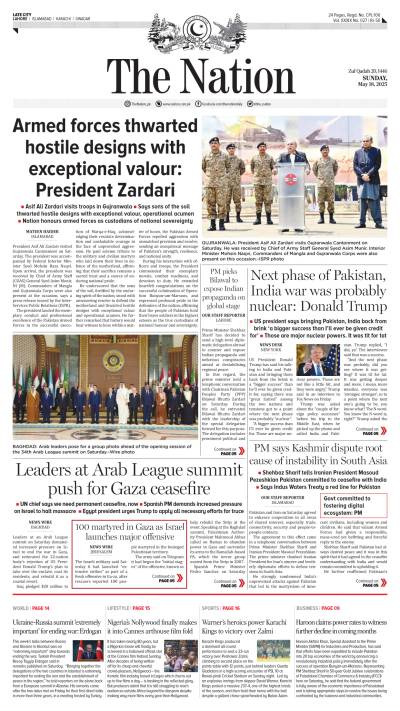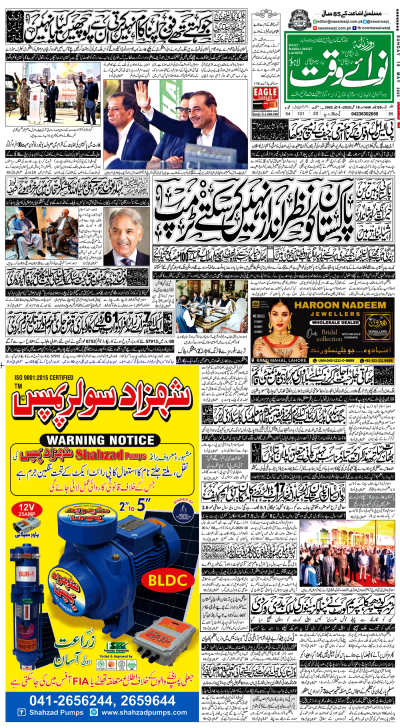ISLAMABAD - A phrase ‘larger-than-life’ hardly encompasses the multifaceted and multidimensional personality of late Sardar Abdul Qayyum Khan who had spent his whole life struggling for the cause of Kashmiri people both in the battlefield, fighting guerrilla warfare against the Indian occupation forces in his youth, and then switching over to political and diplomatic fronts raising voice for them on all forums.
At the time of partition he was among the forerunners who had launched the armed struggle to liberate Kashmir after India forcefully tried to annex Kashmir valley and that was the reason he was given the title of Mujahid-i-Awwal for firing first bullet for liberation of Kashmir at Neela Butt on August 23, 1947. That struggle continued for almost two years and according to available statistics some 32,000 square miles area was liberated, which now comprises AJK.
Over the past 15 years this scribe had series of meetings and interviews with Sardar Abdul Qayyum Khan who had served as president and prime minister of Azad Jammu and Kashmir for several times.
Sardar Abdul Qayyum was very clear about his stance on Kashmir, the ongoing freedom struggle by Kashmiri youth and the role of successive governments in Pakistan towards this one of the oldest disputes on United Nations Security Council’s agenda.
The founder of AJK Muslim Conference, the party which had ruled the AJK over five decades since independence in 1947, Sardar Abdul Qayyum Khan termed AJK as base camp of Kashmir movement with sole aim to secure right to self-determination for the people of Kashmir which is their inalienable right.
It was for that matter Sardar Qayyum wanted that AJK should not be over-politicised and was strong opponent of mainstream political parties in Pakistan to have any role here, which according to him would weaken the case of Kashmiris at international forums.
Similarly he was also averse to the participation of volunteers from across Pakistan in the ongoing armed struggle going on in Occupied Kashmir against the Indian troops engaged in blatant human rights violation and pogrom of innocent Kashmir people.
He was not happy with the way the affairs in AJK were being run nowadays and said that his fears about the role of non-Kashmiri people in the ongoing armed struggle had come true and the engagement of non-Kashmiri people in the freedom movement had provided India with an opportunity to dub it as terrorists’ movement, the move could not make impression at international level due to the pro-active role being played by Kashmiris on diplomatic front.
He was not at all happy with the stepping in of mainstream political parties like PPP and PML-N in AJK as, according to him, it had weakened their position of keeping the territory a part of territorial dispute, which needed resolution in the light of the UN General Assembly resolutions.
Sardar Qayyum was critical of the role being played by the successive governments in Pakistan on resolving the issue at international level and wanted to see the projection of the case at diplomatic front more pro-actively.
A writer of several dozen books on Kashmir cause and spiritualism Sardar Abdul Qayyum Khan had spent his whole life for fighting the case of Kashmiri nation and had distinct honour of fighting for the cause in the battle field and then spearheading the case of Kashmiri nation on diplomatic front and had almost raised the issue at all international forums.
Once giving interview to The Nation some 10 years back Sardar Qayyum Khan said that spiritualism and mysticism were his second love and that was the reason he had written over a dozen books on mysticism.
Among so many feathers in his cap he had also rare honour of leading the chairman of Pakistan’s National Kashmir Committee in 2002 to move around the world to project the cause of Kashmiri people.
A remarkable orator Sardar Abdul Qayyum Khan was widely respected by the Kashmiri leadership across the Line of Control, mainly for his unflinching commitment for the cause of Kashmir nation.
He died here after protracted illness at the age of 92 and was laid to rest at his ancestral graveyard, in Ghaziabad, Dirkot Azad Kashmir.
Monday, May 19, 2025
Sardar Abdul Qayyum: a fighter on many fronts

-
Lahore emerges among safest global cities in Numbeo 2025 index
-
Lahore emerges among safest global cities in Numbeo 2025 index
-
India’s suspension of Indus Water Treaty legally baseless
-
Seventh polio case reported in Pakistan amid nationwide vaccination drive
-
Pakistan reports sixth polio case of 2025
-
PTA begins issuing VPN licences to regulate usage
Culture Shift
May 18, 2025
Tactical Shift
May 18, 2025
Unmasked Cruelty
May 18, 2025
India Isolated
May 17, 2025
Descent into Hell
May 17, 2025
Pakistan’s Strategic Edge
May 19, 2025
Lessons for India
May 19, 2025
Galiyat’s Poor Network Services
May 19, 2025
A City in Neglect
May 19, 2025
Rising Cost of Living
May 19, 2025
ePaper - Nawaiwaqt
Nawaiwaqt Group | Copyright © 2025





